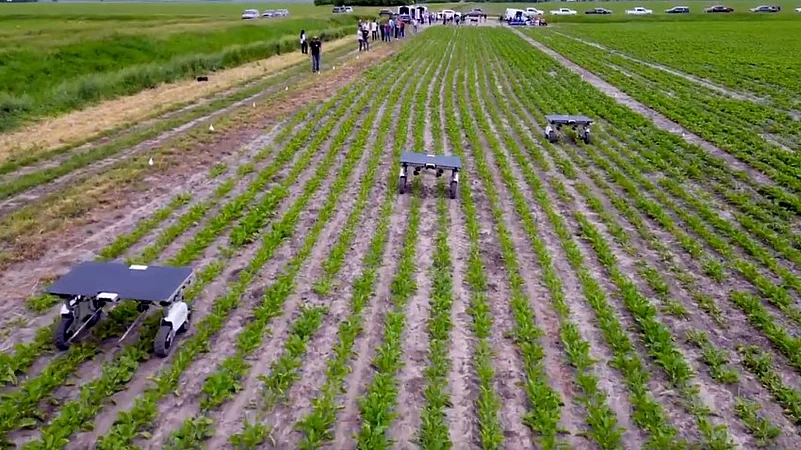The shortage of labourers and growth of herbicides-resistant weeds in California prompted the startup Aigen to come up with a solution named Element. The company claims that their solution can save farmers money, help the environment and keep harmful chemicals out of food, reported AFP.
They have employed a wheeled robot that gets powered by sun and combs a cotton field in California, plucking out weed.
“I really believe this is the biggest thing we can do to improve human health,” co-founder and chief technology officer Richard Wurden told AFP, as robots made their way through crops at Bowles Farm in the town of Los Banos. “Everybody’s eating food sprayed with chemicals,” he added.
Wurden, a mechanical engineer who worked with Tesla for five years, went on to work on the robot after relatives who farm in Minnesota told him weeding was a costly bane.
Element, the robot resembles a large table on wheels, solar panels on top. Metal arms equipped with small blades reach down to hoe between crop plants.
The robot’s AI system takes in data from on-board cameras, allowing it to follow crop rows and identify weeds. Along with the on-board AI, robots communicate wirelessly with small control centers, notifying handlers of mishaps. Aigen has robots running in tomato, cotton and sugar beet fields and touts the technology’s ability to weed without damaging the crops.
Lee estimated that it takes about five robots to weed 160 acres (65 hectares) of farm. The robots made by the 25-person startup—based in the city of Redmond outside Seattle—are priced at $50,000.
The technology caught the attention of Amazon Web Services (AWS), the e-commerce giant’s cloud computing unit.
Aigen was chosen for AWS’s “Compute for Climate” fellowship program that provides AI tool, data centre power and technical help for startups tackling environmental woes.
“Aigen is going to be one of the industry giants in the future,” said AWS head of climate tech startups business development Lisbeth Kaufman.
Gen AI in Agriculture
According to a Mckinsey report, gen AI, applications that process large and varied sets of unstructured data, including geospatial and weather data and perform more than one task, can generate new ideas by identifying patterns in large unstructured data sets, particularly when it comes to complex tasks such as molecular research, marketing or agronomy and code generation.
AI can create significant value for agriculture on the acre, where crops and livestock are produced.
AI is emerging as a transformative tool in the Indian context as well to tap AI’s potential and scale adoption of AI in the sector to deal with issues such as low productivity, fragmented landholdings, climate risks and market inefficiencies, according to a report published by World Economic Forum on April 29.
Agriculture in India, employing 42% of the country’s population and contributing 18% to its GDP, could leverage the technology to shape the agricultural landscape in India.

































